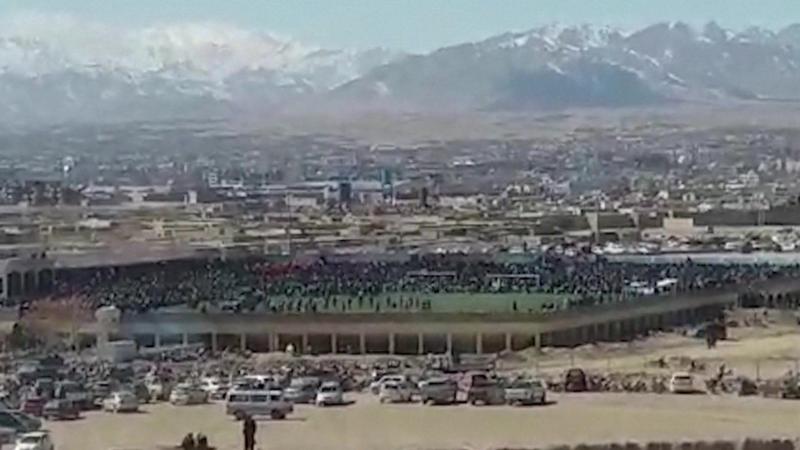The Supreme Court of the de facto government has written in a newsletter that the verdict of “retribution” of two men was executed in the presence of the people in Ghazni Province after approval by Mawlawi Hebatullah Akhundzadah.
According to the news report, the retaliated people who were citizens of Maidan Wardak province and each was accused of murdering a man, were sentenced to retribution after reviewing their cases in the three courts of the Afghanistan judicial system, which spanned a period of two years.
It is stated in the Supreme Court’s newsletter that at the time of execution of the sentence of retribution on two of the convicts, the judges, a number of local officials and a large number of citizens were also present.
According to the AFP news agency, the sentence of retribution for the convicted persons, which was signed and approved by Mawlawi Hebatullah Akhundzadah, the leader of the Taliban, was first read out loud by a local official of the de facto government, and then several shots were fired in the presence of the families of the victims.
According to the Associated Press news agency, out of a total of fifteen bullets fired in this incident, eight bullets were fired at the back of one of the convicts and seven bullets were fired at the back of another convict, and finally their bodies were transported by ambulance.
A video published by the same news agency shows the presence of hundreds of vehicles and thousands of people around the place where the sentence was executed, which is the Ghazni Province Stadium.
Execution of the death sentence is prohibited in many countries of the world because it destroys a human life. In the last twenty years, Afghanistan witnessed the execution of few cases of dangerous criminals, but all efforts were made to avoid the death penalty.
Last year, the Secretary General of the United Nations also called for an immediate halt to the implementation of death sentences by the caretaker government of Afghanistan, however, execution is carried out in the country because it is one of the usual punishments in Islamic texts.
On the other hand, there are concerns about the defendants’ lack of access to defense lawyers and the lack of transparency in the proceedings in Afghanistan’s traditional courts; this has even caused the concern of the United Nations.
With the domination of the caretaker government, the civil laws of the previous system were abolished, and in its place, a traditional judicial system based entirely on the Islamic Sharia rules was established.
At the same time, the implementation of Sharia limits and the punishment of criminals in stadiums have also provoked criticism.











Read More
Afghanistan National Futsal Team Starts Strong with a Decisive Victory over Tajikistan
Afghanistan National Futsal Team Faces a Tough Challenge in the “Group of Death” at the Islamic Solidarity Games
The Lions of Khorasan Crowned Champions After a Historic Humiliation of Iran